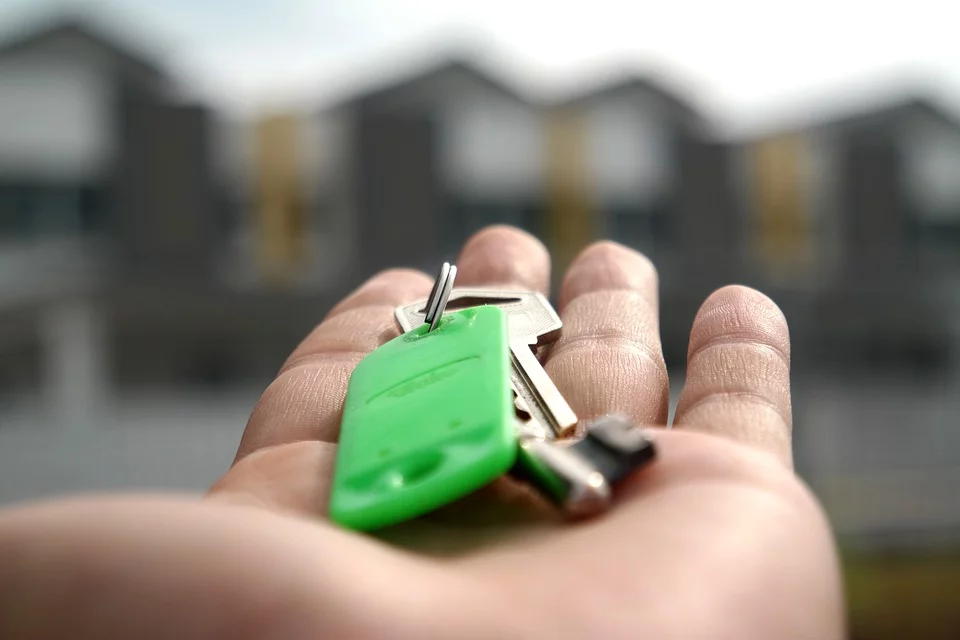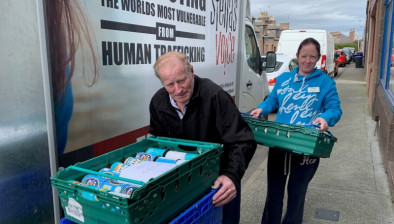Number of first-time buyers in Scotland at seven-year low
The number of first-time buyers in Scotland is at a seven-year low, falling over a third (35%) since last year, according to the latest data from Bank of Scotland.

The data revealed that in the first six months of 2020 there were 10,158 first-time buyers, compared to 15,570 over the same period in 2019. This is the lowest number of buyers taking their first step onto the property ladder since 2013.
The fall comes despite first-time buyers making up over half (51%) of the property market, up from 37% in 2009.
Meanwhile, the cost of a first home has risen 42% in the last decade, with the average price of a first-time buyer property increasing from £108,774 in 2010, to £154,449 today. This compares to an average 34% rise for home-movers. Scottish first-time buyer properties have seen a 4% rise in the last year alone.
Graham Blair, mortgages director, Bank of Scotland, said: “While a number of first-time buyers were unable to take their first step onto the housing ladder during lockdown, we are already seeing activity levels growing as buyers kick off their property searches once again and look to make the most of the Government support available. With properties in the capital costing more than five times the average local salary while other areas remain affordable, the challenges facing first-time buyers are heavily influenced by where in the country they are house-hunting.”
The data also revealed that Scottish first-time buyers are putting down record deposits, averaging £31,257 in 2020, which is 27% higher than 2010. However, deposits as a percentage of the property price continue to slide from their peak of 23% a decade ago, to 20% today.
The average deposit for a first-time buyer in Scotland is also a third less than the UK average of £47,059.
In Edinburgh, first-time buyers are putting down the largest deposits, with an average of £49,575 (24% of the property price). This is followed by Stirling in the Central Belt (23%), further North in Moray (22%) and the Highlands (22%).
Buyers who are willing to look around could consider homes in East Ayrshire, which has the smallest average deposit, at £16,656 (15% of the property price). First-time buyers could also consider West Dunbartonshire – where the average deposit is also 15% of the property price – and Inverclyde (16%).
The average age of a first-time buyer continues to rise gradually, from 29 a decade ago to 31 in 2020. This mirrors the average age across the UK, which has risen from 30 in 2010 to 31 today.
The youngest buyers can be found in Falkirk, South Ayrshire, Angus, and the City of Edinburgh, where the average age of someone taking their first step onto the property ladder is 30. The oldest buyers are in Dundee, Perth and Kinross and the Scottish Borders, where the average age is 32.
Areas are considered ‘affordable’ when property prices are no more than four times local earnings. Scotland’s most affordable area for a first-time buyer can be found in North Ayrshire, where the average property price is 3.2 times the average local salary. East and South Ayrshire closely follow, with properties costing 3.3 and 3.6 times the average local income respectively.
Buyers looking to get the biggest ‘bang for their buck’ may also want to look at Renfrewshire, or West Dunbartonshire, where property prices are also 3.6 times the average local earnings.
Midlothian is Scotland’s least affordable area, with properties costing 5.3 times the average local salary. This is closely followed by the City of Edinburgh and East Lothian, where first-time buyers can expect their first property to cost 5.0 times local salary.
Edinburgh continues to be more affordable than the UK capital, with properties in Brent, North London, costing 12.3 times the average income, making it the UK’s least affordable area.
However, according to property platform Apropos, The dramatic fall in first time buyers in Scotland will only get worse before it gets better.
The firm has said that with the average age of a first-time buyer in Scotland rising to 31 and deposits now at £31,257 there is growing evidence that this group are being priced out the market and squeezed by stricter lending criteria.
David Alexander, joint managing director of apropos, said: “It is not a coincidence that the number of first time buyers has fallen by 35% over the last year while property prices for this group have risen by 42% over the last decade. The combination of rising prices, stricter lending criteria, and a booming homes sector has led to the young, who are the largest group of first-time buyers, being pushed out of the market.
“While this reduction in the number of first-time buyers is regrettable, I believe that the situation may get worse before it gets better. Affordability issues have been building for some time for first time buyers and the pandemic has, unfortunately, simply exacerbated an existing issue.
“Lenders have become more restrictive in their lending criteria since the pandemic and are likely to see first time buyers as a potentially greater risk. The number of mortgage products as a whole has shrunk substantially in recent months and lenders are becoming much more risk averse. In the future they will require higher deposits and, because many first-time buyers are younger people, they may be regarded as being at greater risk of becoming unemployed as a result of the pandemic.”
Mr Alexander added: “Ironically, the property market in Scotland is going through something of a boom at present. This may be due to pent up demand during the lockdown with people desperate to move. The market has also been encouraged by the increase in the threshold for land and buildings transaction tax (LBTT) which may be pushing people to buy now to save a few thousand pounds.
“Unfortunately, this current boom may be acting as a further discouragement to first time buyers who may feel they are being squeezed out of the property market. It may not always be this way, but it is clear that, for the moment, first time buyers are feeling the pinch.”









